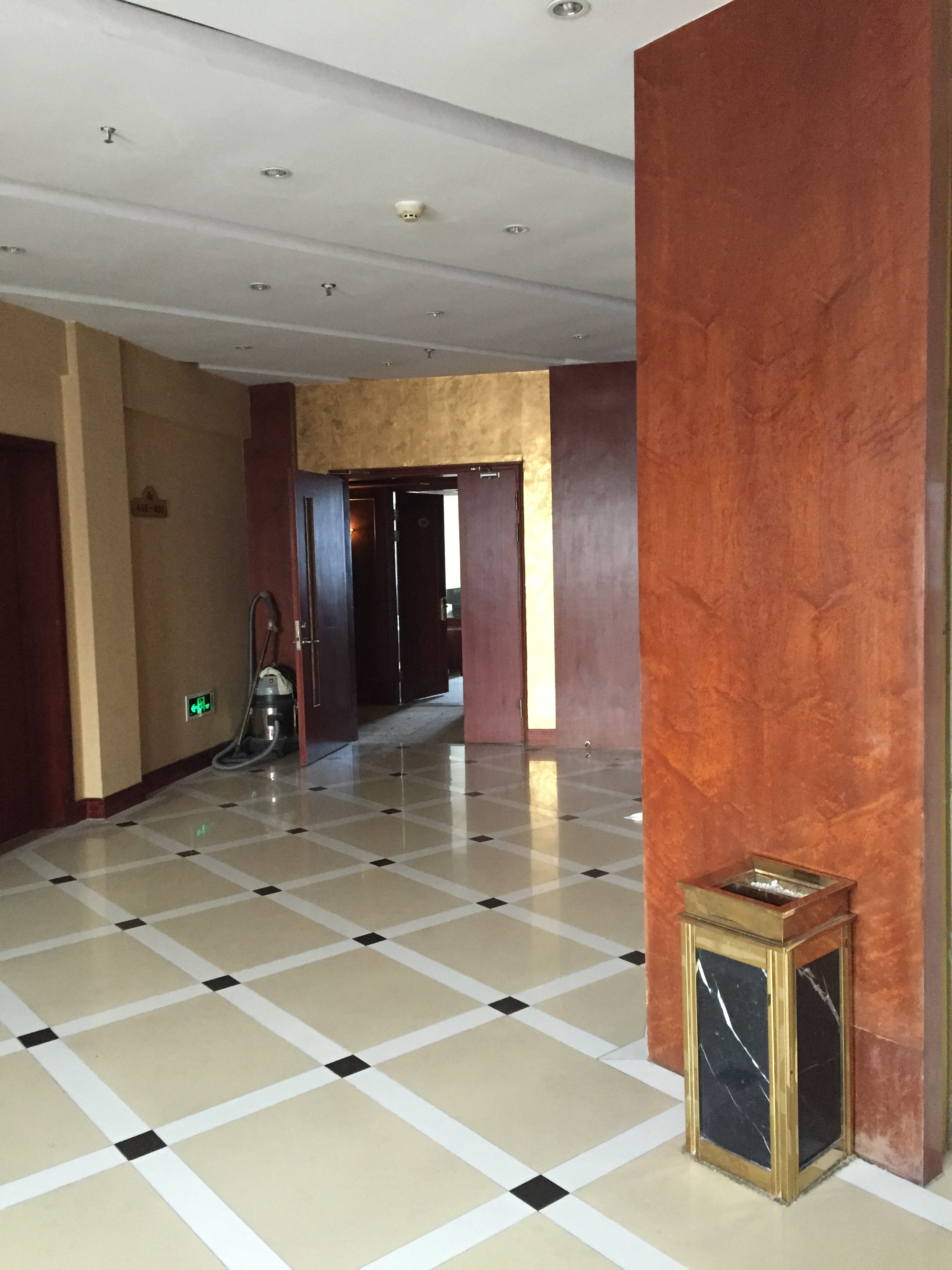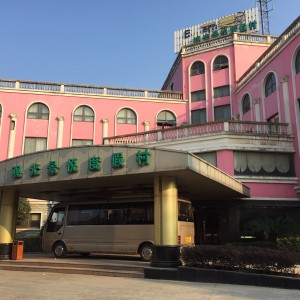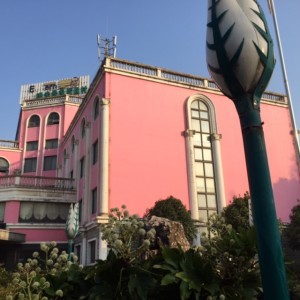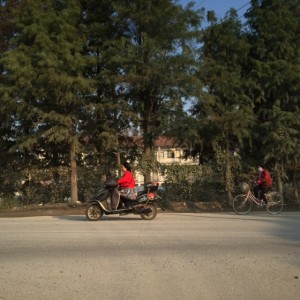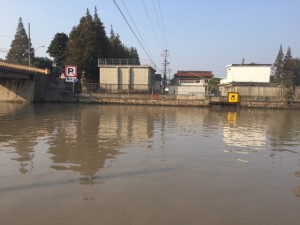海Shanghai Tuesday 3 November 2015
hanghai, we stayed the night at a 3-Star hotel, whose outside walls were pink, bright pink. Did I say the outside walls were pink? I have photos to prove it, but sending photos, let alone email, on this network is barely possible. Certainly, electronics are inexpensive enough to buy here. I discovered that I left my I Phone charger at the Jinyue 99 Hotel in Shanghai, but I paid only $22 for a replacement, which in the States would have cost $60 (nevertheless, I do not recommend losing your charger). But moving that electric content is another story. So far, I have not been on a fast network. Is there a Starbucks in China?
Outside our very pink hotel, construction is seriously under way. My Apple I Phone 6 has a few changes I was not aware of, and, unfortunately, I lost my best photos: an ancient smaller truck, completely brown all over with rust, the noisy guts of the engine quite exposed, the hood doors on either side long lost to time and age, completely missing, pistons (I guess they were) to be seen pumping and popping noisily – very noisily. Hard to believe that such a thing could be running. A great loss, that photo.
And the other photo: a two-wheeled cart perhaps belonging to a junkman, or maybe one who picked up recyclables, the cart piled much too high with plastic wrapped loads of who knows what that quite overwhelmed the cart and its driver. Another great loss.
Back to the serious construction. The road outside our 3-Star hotel was busy with cement trucks, the largest I have ever seen, charging up and back past the hotel on a road badly paved, dusty, narrow, its sides lined with rows of trees, piles of trash, and graffiti-smudged walls.
Talk about busy. The road just by the hotel comes off what must be a main thoroughfare, two lanes, one each direction. I made the mistake of crossing to the far sidle (somehow I reached the other side), and I am amazed that I am not still standing on the far side of that road twenty-four hours later: a constant stream of scooters and motorbikes and cars pouring from both directions. I watched carefully how a couple of Chinese, who clearly knew what they were doing, made it across: by an adept art of dodge and sprint and, surely, prayer. I was to learn that there are relatively few traffic lights in Shanghai.
We must have been in the old part of Shanghai. This was rural Shanghai. When we were driven to the hotel in the dark, I expected to be in a canyon of skyscrapers; but once we left the six and eight lanes of freeways surrounding the airport, we drove forever through narrow roads, poorly paved, lined on either side with tall dense rows of trees, some sort of evergreen, as I saw in the daylight. We were in a marshy area with many small canals; and in the morning, we were able to see these small canals, along with a larger canal, which runs alongside our hotel. Houseboats (another photo lost) were on the canal. The most interesting one had an old square, one-story wooden house sitting in the middle of its length.
We took the bus to Hangzhou. The most boring three-hour bus ride ever, for nothing to be seen but large forests of identical condominiums, grouped in close spaces, with slightly larger spaces separating the one group from the next group; a few clusters of identical townhouses, obviously built just before Shanghai last doubled its population; and just a few two-story houses of post WW II development vintage.
Once in Hangzhou, we hailed a taxi. I had carefully printed out the web page published by the hotel, but it was in English, and I had not noticed that the kanji for the name of the hotel had not been included. Oh, dear. We piled into the cab, put our suitcases into the trunk ourselves (cab drivers seldom do that for you), gave the driver the sheet, and told him the name of the hotel. He scowled, looked at his GPS, and then said what were probably less-than-kind words and told us in universal terms to get out of his cab, immediately.
Which we did. And then fortune favored us. A very bright cab driver called the hotel and delivered us promptly and received a very big tip. Do NOT, I repeat, do not come to China without knowing some Mandarin. Do learn more than I have been able to learn, but the few words I have learned have helped immeasurably. While the people at our hotel in Hangzhou have been most helpful (the manager speaks fluent English), many Chinese are distinctly disdainful of non-Mandarin speakers.
We yearned for some dinner and found a restaurant that, we finally figured out, allows you to make your own soup. Trays of all sorts of vegetables, meats, condiments, are in a glass refrigerated case, two great vats of broth simmering near the doorway. The customer picks up a small basket, opens the glass doors, and with tongs, picks up bunches of what is to go into the soup to be cooked-to-order. Tsutae and I were slow to figure out exactly what to do, then slow to decide what to select. The owner said something rather curtly, and I replied in my best Mandarin, “I do not understand what you are saying.” He scowled more intensely and said probably the same thing the first cab driver had said, only something even more derogatory, and grabbed our basket from out of our hands. No made-to-order soup for us.
It’s all part of the travel experience, is it not. We finally found some dinner, and the the restaurant owner was very polite. It was a good dinner, too.

